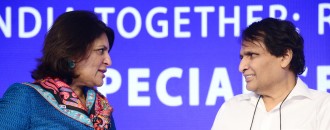
India’s trade policy largely driven by domestic supply factors: WTO
Jayarama Emani | The Dollar Business
Despite India continuing its efforts to liberalize and facilitate trade for some agricultural products, and proceeded with further structural reforms including by eliminating price controls on diesel and relaxing foreign direct investment (FDI) restrictions in some sectors, its tariff structure remains complex. These were the findings of the sixth Trade Policy Review of India, prepared by World Trade Organisation (WTO). The review also said that, India's trade policy is largely driven by domestic supply considerations and also intended to attain short-term objectives, such as containing fluctuations in commodity prices. This requires constant fine-tuning of policies, for example, through notifications by the Directorate General of Foreign Trade (DGFT) and Customs, rendering the trade regime less predictable and creating additional costs. However, Shiv Kumar Rungta, President, FTAPCCI (The Federation of Telangana and Andhra Pradesh Chambers of Commerce & Industry) told The Dollar Business that, the tariff regime especially with respect to import framework will improve over time. He said, “Import duties have been coming down over a period of time though the government is has its own compulsions to protect the domestic industry and promote indigenous manufacturing under the new mantra of ‘Made in India.’ The situation will improve as India is neither rigid or does have any issue with WTO on trade policies.” Measures to attract FDI have included gradually increasing the number of sectors in which FDI is permitted and reducing sectoral restrictions. India has continued to liberalize its investment policies, including raising foreign-ownership limits in some sectors, such as insurance and railway transport. Rungta added.
June 03, 2015 | 8:09 pm IST.






 to success.
to success.